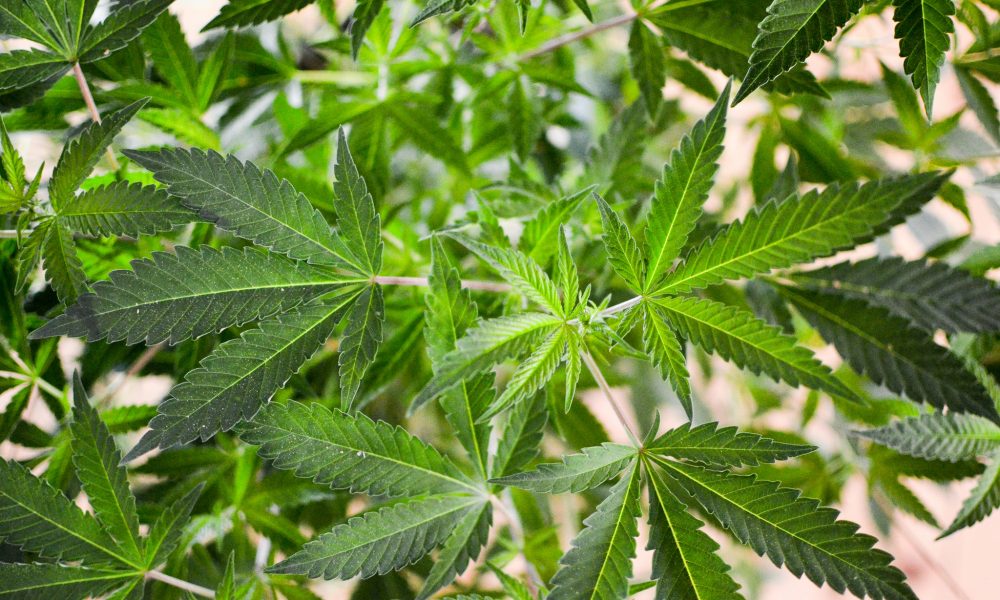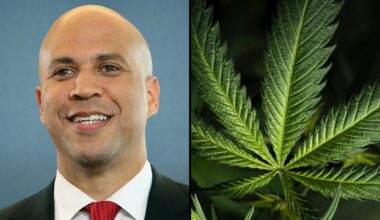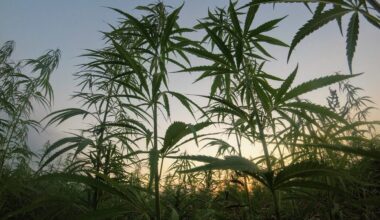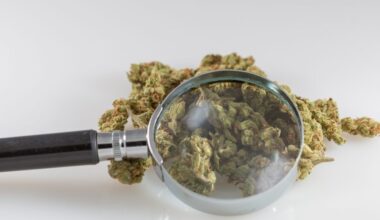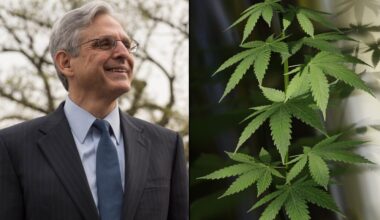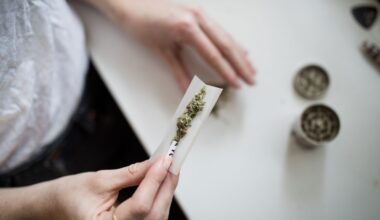Massachusetts lawmakers on Tuesday heard testimony about a bill to create a task force charged with studying the implications of legalizing psychedelics like psilocybin and ayahuasca.
The legislature’s Joint Judiciary Committee met to discuss legislation from Rep. Mike Connolly (D). While members didn’t vote on the proposal, the sponsor was able to make the case for the reform, noting the emerging research that suggests entheogenic substances hold significant therapeutic potential for certain mental health conditions.
He also pointed to the local reform movement that’s led three Massachusetts cities to decriminalize psychedelics so far, saying it represents “another reason why it should be a priority for all of us to bring stakeholders together and have that conversation about what policies should look like.”
“We’re hearing from the medical community, we’re hearing from clinicians and researchers that the potential benefits here simply can’t be ignored,” Connolly said. “There are these issues like PTSD and depression, anxiety and addiction that…we are struggling to address, and what the research is telling us is that these substances offer a tremendous benefit.”
The 21-member task force that the lawmaker is proposing would be responsible for analyzing the pros and cons of “legalizing the possession, consumption, transportation and distribution of naturally cultivated entheogenic plants and fungi.”
The sponsor said on Tuesday that the group “could really allow Massachusetts to play a leadership role in crafting policies around these substances.”
In an email to Marijuana Moment, Connolly said that momentum for broader psychedelics and drug policy reform in states across the country shows that “our proposal to create a task force to craft policies around legalization is rational and warranted.”
“Given our status as a longtime leader in civil rights, freedom, academic research and advances in medicine,” he said, “it is important for the Commonwealth of Massachusetts to be proactive about crafting policies to ensure that as the movement for legalization of psychedelics continues to advance—and as the clinical trials showing the therapeutic value of these medicines continue to pile up—that we are moving forward in an equitable, just and inclusive fashion.”
—
Marijuana Moment is already tracking more than 1,100 cannabis, psychedelics and drug policy bills in state legislatures and Congress this year. Patreon supporters pledging at least $25/month get access to our interactive maps, charts and hearing calendar so they don’t miss any developments.![]()
Learn more about our marijuana bill tracker and become a supporter on Patreon to get access.
—
Middlesex District Attorney Marian Ryan also testified in favor of the reform proposal before the committee on Tuesday.
For the most part, the burgeoning psychedelics reform movement has been limited to decriminalization—with the exception or Oregon, where voters elected to legalize psilocybin for therapeutic purposes during last year’s election. California activists are also pushing to place psilocybin legalization on the state’s 2022 ballot as a lawmaker works to pass a separate bill to legalize possession of a wide range of psychedelics that has already passed the state Senate and two Assembly committees.
While the Massachusetts legislation would only establish a task force to investigate the potential legalization of these substances, it marks another significant development demonstrating how local reforms have caught the attention of state legislators.
Connolly said at Tuesday’s hearing that it’s important to remember “that it was the Nixon administration in the 1970s that classified entheogens as Schedule I substances, without any real scientific basis. It was more to do with politics—it was more to do with systemic racism—that led to this classification and this criminalization.”
“Today, when you hear some of the professionals, some of the researchers talk about this, they really feel like we lost several decades of potential therapeutic benefit because of these arbitrary political decisions,” he said. “With this task force, there really is an opportunity for us in Massachusetts to bring policymakers and stakeholders together to make sure that as this research advances we can be ready with applicable policies, so don’t don’t repeat the mistakes of the past.”
The lawmaker said “the war on drugs, racial injustice and years of oppression here in our country” partly motivated the introduction of his legislation.
The task force would “bring together stakeholders from the scientific, public safety, racial justice, harm reduction, indigenous, social work, the relevant regulatory bodies and medical communities to make recommendations for the legalization and possession, consumption and distribution of entheogenic substances,” he said.
Three Massachusetts cities—Northampton, Somerville and Cambridge—have each passed resolutions to deprioritize enforcement of laws against the possession, use and distribution of a wide range of psychedelics and other drugs.
“I’m proud to represent Somerville and Cambridge, two communities that have acted in recent months to decriminalize the possession of psychedelics and entheogenic plans, primarily as part of the larger movement to continue working to undo the racist impact of the War On Drugs,” Connolly told Marijuana Moment.
If his bill is enacted, the 21-person task force would have until June 2022 to study the effects of plant- and fungi-based psychedelics and develop recommendations for how to legalize the substances “in a manner that maximizes equitable access and sustainable manufacture of these plants.”
Particular focus would be paid under the bill to the impact of drug prohibition on on marginalized groups, “including indigenous people, veterans, people with physical and mental health disabilities, Black people, people of Latino and Hispanic heritage, people of Asian descent, people of color, people in poverty, and people identifying with the LGBTQ community.”
The measure also calls for the task force to develop recommendations around “pardons, parole, diversion, expungement, and equity measures” for people with criminal records due to possession, or distribution of controlled substances.
The Massachusetts developments are some of the latest iterations of a national psychedelics reform movement that’s spread since Denver became the first city to decriminalize psilocybin mushrooms in 2019.
Besides the cities in Massachusetts, four others—Oakland, Santa Cruz, Ann Arbor and Washington, D.C.—have also decriminalized possession of plant-and fungi-based psychedelics.
An Arcata, California councilmember announced this month that she would sponsor a measure to decriminalize psychedelics. That measure has since been referred to a committee.
The governor of Connecticut signed legislation recently that includes language requiring the state to carry out a study into the therapeutic potential of psilocybin mushrooms.
Texas also recently enacted a bill to require the state study the medical benefits of psychedelics for military veterans.
A New York lawmaker introduced a bill last month that would require the state to establish an institute to similarly research the medical value of psychedelics.
In Oakland, the first city where a city council voted to broadly deprioritize criminalization of entheogenic substances, lawmakers approved a follow-up resolution in December that calls for the policy change to be adopted statewide and for local jurisdictions to be allowed to permit healing ceremonies where people could use psychedelics.
After Ann Arbor legislators passed a decriminalization resolution last year, a county prosecutor recently announced that his office will not be pursuing charges over possessing entheogenic plants and fungi—“regardless of the amount at issue.”
The Aspen, Colorado City Council discussed the therapeutic potential of psychedelics like psilocybin and proposals to decriminalize such substances at a meeting in May. But members said, as it stands, enacting a reform would be more better handled at the state level while entheogens remain strictly federally controlled.
Seattle lawmakers also recently sent a letter to members of a local task force focused on the opioid overdose epidemic, imploring the group to investigate the therapeutic potential of psychedelics like ayahuasca and ibogaine in curbing addiction.
The psychedelics conversation is also catching on at the federal level.
The U.S. House of Representatives will vote this week on a proposal from Rep. Alexandria Ocasio-Cortez (D-NY) that remove a spending bill rider that advocates say has restricted federal funds for research into Schedule I drugs, including psychedelics such as psilocybin, MDMA and ibogaine.
In 2019, a large majority of Democratic House members joined all but seven Republicans in a vote against an earlier version of the congresswoman’s amendment. But given the surge in state and local psychedelics reform efforts in the years since, it stands to reason that this Congress may take the issue more seriously this time.
Federal health agencies should pursue research into the therapeutic potential of psychedelics for military veterans suffering from a host of mental health conditions, a report attached to separate spending legislation that’s part of an advancing minibus package says.
When it comes to broader drug policy reform, Oregon voters also approved an initiative in November to decriminalize possession of all drugs. This year, the Maine House of Representatives passed a drug decriminalization bill, but it later died in the Senate.
Last month, lawmakers in Congress filed the first-ever legislation to federally decriminalize possession of illicit substances.
Photo courtesy of Wikimedia/Mushroom Observer.
Medical Disclaimer:
The information provided in these blog posts is intended for general informational and educational purposes only. It is not a substitute for professional medical advice, diagnosis, or treatment. Always seek the advice of your physician or other qualified healthcare provider with any questions you may have regarding a medical condition. The use of any information provided in these blog posts is solely at your own risk. The authors and the website do not recommend or endorse any specific products, treatments, or procedures mentioned. Reliance on any information in these blog posts is solely at your own discretion.
